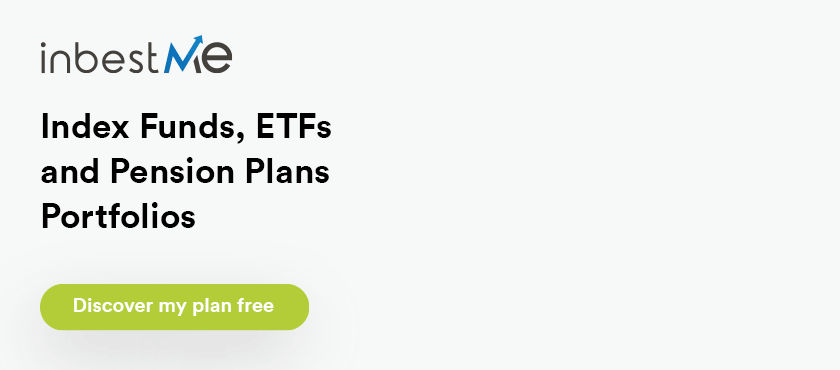Take control of your finances
Most investors or savers are very busy professionals that possibly need some help to start taking their first steps in investing or they might even delegate all investment decisions to a specialist.
Many investors begin their investment journey relying on their usual bank and in the bank’s office manager. This is usually a bad choice because you will get a mediocre, not very personalized or independent service and it often turns out that the bank has a high percentage of the portfolio in terms of bank assets. Few stop to further analyze the cost of this service (often around 2- 2.5%), since the funds used cost are rarely specified. According to the type of operation, we might have to add transaction costs. These costs are often higher than other more specialized investment services (around a minimum of 0.5%).
An alternative to the bank’s service would be to look for a broker or a specialized asset manager. This option normally ensures a more independent management because it doesn’t depend on a bank. In this case, investors could face the problem related to minimum amounts. To guaranty a quality service the minimum amount required is from 500,000 € or even 1,000,000 €. Not many investors have such amounts. In this situation, total costs might reach 3%, but quality services can be found at a lower price. The “2 & 20s” well known formula consists of charging the customer a fixed 2% of the capital invested and the 20% of the annual profitability. If one year we obtain a 10% on gross returns, following the 2 & 20 formula would suppose paying up to a 4% (2% fixed + 20% x10% = 2%), hence reducing or net profitability to 6%.
Looking for an independent adviser could be a good alternative to take into account. They are more flexible with minimum amounts and even some start bellow 500,000 €. However, most independent advisers end up using investment funds. As we mentioned earlier, these funds carry implicit commissions ranging from 1.5% to 2.5%. Often management companies fall back part of this cost to the financial advisor that then decides if this amount is returned to their client or not. The final commissions can be very diverse but if we consider all costs, we can hardly find high quality services below 2.5% to 3%. Sometimes, they are just simple brokers that obtain the main income source out of transaction fees thus encouraging unnecessary purchases and sales.
Finally, we can always manage our investments ourselves. If you choose this option, we suggest you read about this subject as much as possible. One of our main purposes is to help increase financial literacy. We hope to contribute in this task by publishing articles and our opinions in Inbestme’s website. Knowing how to prioritize the type of decisions we make is very important as well.
It is not easy to find an ideal service. A good option is to ask our friends or acquaintances if they know about good manager. But still we should control all the other aspects.
To sum up, our recommendations are:
How to invest, Inbestme’s SCOPE:
S: System / organization: it is important to ensure that the service they are offering suits us, taking into account the strategies and the tools used for this purpose. It is also fundamental to agree on which will be the “benchmark” index or combination of indices that serve to evaluate management.
To have visibility of our portfolios and total control of our account and that we are able to change managers easily without a penalty cost also is imperative. Moreover, it is important to know if the funds deposited are insured.
C: Commitment / Cost: the manager’s commitment and that he/she fully understand our needs is essential. If there is a bad communication or interaction, it is advisable to look for another manager. It is also good to know where the manager is investing and the manager’s “track record”.
Understanding the total costs of the manager’s advice is even more important. These costs will be deducted from our returns and they have shown to have a definite impact on the portfolio’s long-term profitability. We should reject any manager that doesn’t explain the costs and that is not clear about the goals to be achieved. We should carefully study explicit costs (the ones charged directly) and implicit costs (the ones we don’t realize because they are subtracted directly from the net asset values). Let’s see if the total commissions they charge us make sense according to the service they offer.
O: Objectivity / independence: we reject any manager that doesn’t choose assets with total objectivity and independence. We should question those managers that have a particular predilection towards a particular fund manager (because they get more retrocessions).
P: Proactivity / Partnership: it is important to see our manager is keen on improving their results for our investments and that he/she proactively informs us about the market situation and our specific portfolios.
E: Education: take advantage of the manager’s lessons. If we don’t learn anything about our manager and the world of investments, it is hardly the right manager.
In short, before selecting a manager it is important to clarify potential conflicts of interest and to make sure that commissions and compensations are transparent. However, above all, the manager has to be capable of diagnosing our needs and proposing an investment plan to be internalized and completely assimilated by us. In the end, what we try to do is to avoid the worst mistake of buying expensive and selling cheap. Financial advisors should allow us to make rational decisions and help us put our emotions aside. Markets usually reward discipline!
Inbestme has launched a digital financial advisory service that supposes a clear low cost high added-value alternative that responds to all the challenges faced by small investors. If you are ready to invest then the first step is to know your investor profile. If not, you can keep learning with us the basic concepts related to investments and follow our blog. We hope to help you so that you have a better control of your finances.









